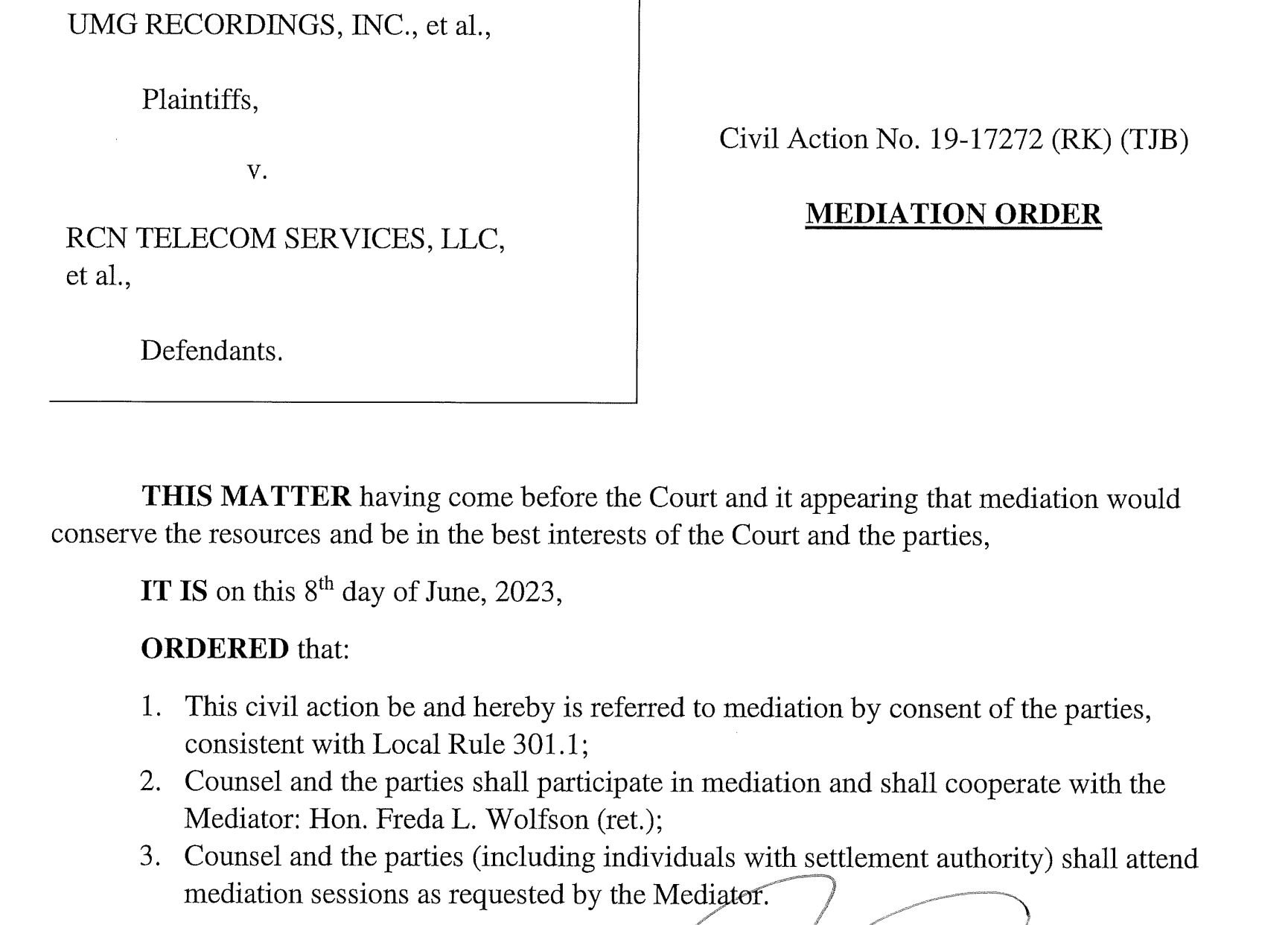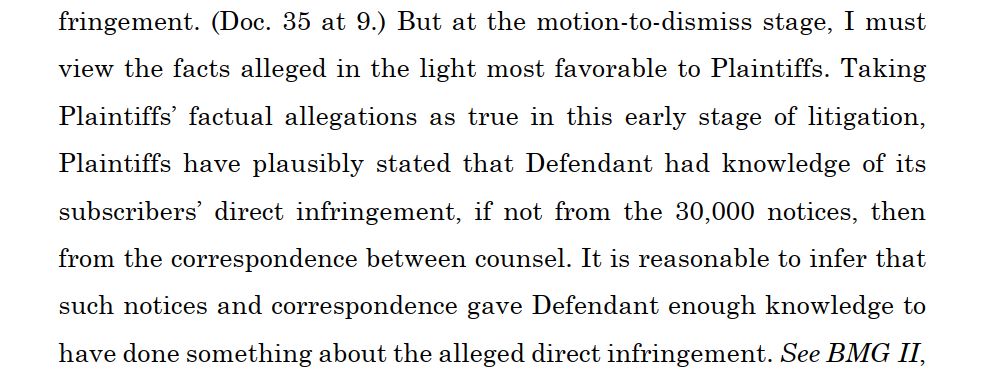-
chevron_right
Internet Provider Must Pay $47m Bond to Appeal Piracy Liability Judgment
news.movim.eu / TorrentFreak · Saturday, 29 July, 2023 - 20:28 · 3 minutes
 Last fall, a Texas federal jury found Grande Communications liable for willful contributory copyright infringement and ordered the ISP to pay
$47 million in damages
to a group of record labels.
Last fall, a Texas federal jury found Grande Communications liable for willful contributory copyright infringement and ordered the ISP to pay
$47 million in damages
to a group of record labels.
District Court Judge David Ezra confirmed the judgment in January. This was a clear mistake, according to Grande, which hoped to have it overturned.
Do-Over Denied
In March, the Internet provider filed a renewed motion for judgment as a matter of law. Put simply, Grande wanted the Judge to overrule the jury . This is warranted if the evidence clearly weighs in favor of the requesting party but when a jury finds otherwise.
If that was not an option, the ISP asked the court for a new trial to allow the piracy liability issues to be raised again before a new jury.
U.S. District Court Judge David Ezra reviewed the motion but eventually denied both requests. According to the Judge, there was nothing wrong with the jury verdict and the court didn’t make any clear errors either.
“Neither Grande’s legal nor evidentiary arguments warrant judgment as a matter of law or a new trial,” Judge Ezra’s conclusion read.
Appeal Without Bond
With dozens of millions in damages on the line, Grande wasn’t planning to let the issue go. The ISP filed an appeal at the Fifth Circuit which is just getting started.
To save costs, the ISP requested to postpone the damages payment until the appeal concludes. Such a request is not unique, but Grande additionally asked the court to waive the bond it would have to post.
Courts can allow such postponements in extraordinary circumstances, when there’s no doubt that the losing party can easily pay their dues at a later stage, for example.
According to Grande, the company and its parent Astound have plenty of financial resources to enable payment when the time comes. The company further notes that posting a bond for the full $47 million judgment is a ‘waste of money’, as that would cost millions.
“Requiring Grande to post bond or other security when there is no dispute as to Grande’s financial security would be a ‘waste of money.’ A bond for the full amount of the current judgment would cost Grande approximately $4 million per year.
“Because Grande is capable and will continue to be capable of satisfying the judgment, it would serve no legitimate purpose to require Grande to incur this substantial annual expense, which would benefit the issuer of the bond and no one else.”
Music Companies Oppose
The request sounds straightforward, but the music companies have a different take on the matter. They don’t want the bond waived and point out that Grande’s current stance is contrary to the one it took at trial.
The ISP now highlights the financial backing of its parent, the Astound group , but previously asked for Astound’s financial strength to be excluded from the trial.
“The Court’s ruling excluding this evidence was based on the adamant representations of Grande’s counsel that Grande is an independent entity from Astound and that Astound’s finances were wholly irrelevant to this case,” the music companies note.
“Grande now argues that it should be permitted to ride Astound’s financial coattails and rely wholly on Astound’s present-day assets and revenues to avoid this automatic procedural rule and waive the bond requirement that applies to every defendant that loses at trial.”
The music companies ask the court to deny Grande’s request, arguing that the company fails to provide evidence to demonstrate its own financial position.
Grande’s comments about the “waste of money” are not sufficient either according to the plaintiffs. This argument is backed up by a statement by Astound’s Chief Financial Officer, but that is self-serving and lacks proper documentation, the music companies counter.
Post The $47m Bond, Or Else
After reviewing the arguments from both sides, Magistrate Judge Dustin Howell agreed with the music companies, denying Grande’s request to waive the bond.
In addition, Judge Howell grants the music companies cross-motion, which requires the Internet provider to post the required $47 million bond within two weeks. Failure to do so means that the company must pay the full damages amount right away.

—
A copy of U.S. Magistrate Judge Dustin Howell’s order is available here ( pdf ). Grande’s original motion and the opposition from the music companies can be found here ( 1 , 2 )
From: TF , for the latest news on copyright battles, piracy and more.
 Under U.S. law, online service providers need to respond to takedown notices and implement a meaningful policy to terminate the accounts of repeat infringers.
Under U.S. law, online service providers need to respond to takedown notices and implement a meaningful policy to terminate the accounts of repeat infringers.


 Under US copyright law, Internet providers must terminate the accounts of repeat infringers “in appropriate circumstances.”
Under US copyright law, Internet providers must terminate the accounts of repeat infringers “in appropriate circumstances.”


 Internet provider Cox Communications has been on the sharp end of several piracy lawsuits in recent years.
Internet provider Cox Communications has been on the sharp end of several piracy lawsuits in recent years.

 Last fall, a Texas federal jury found Grande Communications liable for willful contributory copyright infringement and ordered the ISP to pay
Last fall, a Texas federal jury found Grande Communications liable for willful contributory copyright infringement and ordered the ISP to pay



 Every day, millions of people from all over the world submit posts, comments, and other content to Reddit.
Every day, millions of people from all over the world submit posts, comments, and other content to Reddit.


